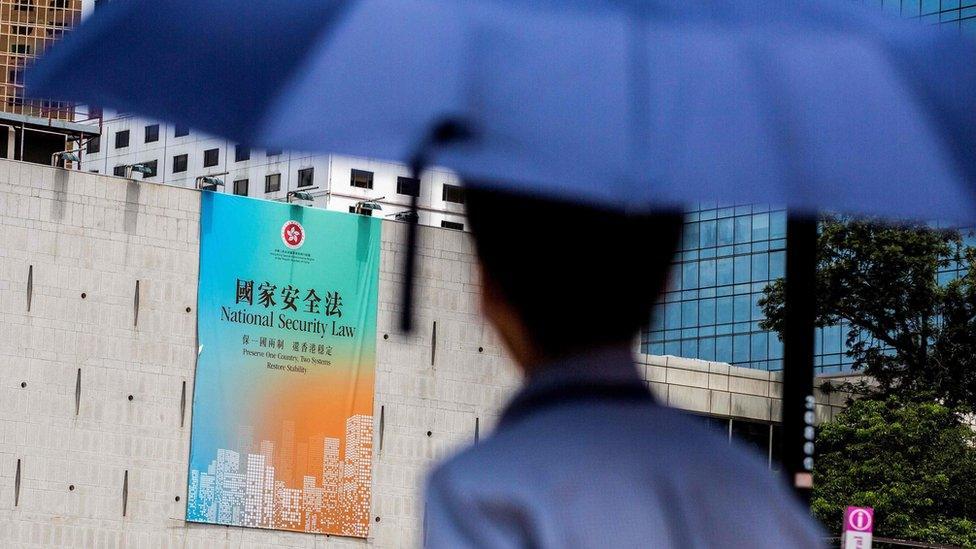The Hong Kong crisis and the new world order
- Published
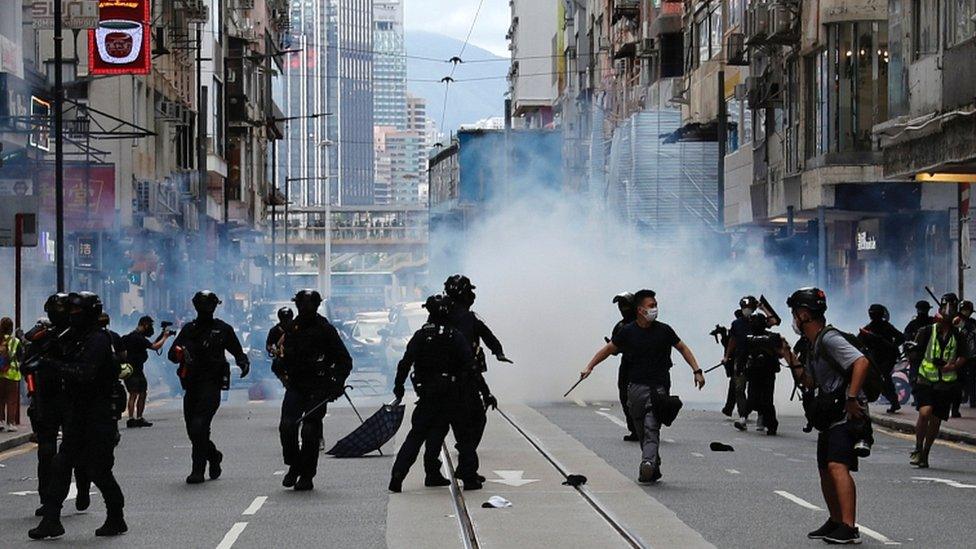
With the UK opening its doors to three million Hong Kong residents and China threatening serious retaliation for what it sees as an intrusion into its domestic affairs, the Hong Kong crisis is becoming a real-time test of diplomacy in a pandemic-distracted world.
So what does this drama tell us about China's emerging place in the new world order? And what light does it throw on the very particular problems posed, post-Brexit, for the British government's efforts to roll out a new and optimistic foreign policy under the banner of "Global Britain"?
First off, was this crisis inevitable? Things might have been so very different. For well over two decades, most policy-makers in the West hoped that China's rise would unfold in a very specific way.
China, it was said, would become a "responsible stakeholder" in the international community. In other words, it would abide by international agreements and norms, because, as part of the system, it benefited from them as much as anyone else.
Maybe in that kind of world, the deal entered into between the British and Chinese governments over Hong Kong's future would have survived.
But things did not turn out like that. China's rise was rapid and single-minded. It became a military superpower, at least in its own region, one that close to home, even the mighty United States would struggle to confront.
But its rise also came about at a time when the West in general and the United States in particular was distracted. There was the war on terrorism and the crisis in Syria. Europe had the distraction of Brexit.
And then there was the Trump administration in the United States which has hardly been consistent on China policy - indeed, it has lacked a strategic sense in foreign policy across the board.
China's rise over the past five years has coincided not just with a relative decline in Washington's standing abroad, but an absolute decline, plunging Washington's alliance systems in Asia, Europe and the Middle East into crisis.
While problems between the West and China grew in number, there was no overall response that saw these as elements - trade tensions, technological rivalries, strategic issues and so on - as part of a bigger "China problem" that required a concerted and co-ordinated response.
This was the world on the brink of the Covid-19 crisis; a drama that originated in China and which initially caused some serious problems for Beijing, but one which it was clearly determined to turn to its advantage.
It is no accident then that a more strident nationalist tone in Chinese policy has been the result, ranging from tensions with the US and Australia, Sino-Indian rivalry on their common frontier, and to cap it all, China's decision to overturn the fundamentals of its deal with the UK over Hong Kong.
Indeed the Covid-19 crisis gave Beijing the opportunity to bring the Hong Kong crisis to a head.
However long this pandemic lasts, one consequence is clear - the trajectory of Beijing's more assertive policy is unlikely to change unless real and concerted pressure is brought to bear. And for all the condemnation of China's attitude towards the liberties of the people of Hong Kong, it is hard to see this happening.
The history behind Hong Kong's identity crisis and protests - first broadcast November 2019
This then places the British government in a significant predicament. Mired in mid-pandemic where Prime Minister Boris Johnson government's handling of affairs has been much criticised, this is the first big test of Britain's new bullish and re-branded foreign policy - an approach dubbed "Global Britain".
Nobody really knows quite what "Global Britain" means.
"Making the best of a bad situation" is what many opponents of Brexit might cynically note. And to be fair, with the Covid-19 pandemic taking up so much of the government's time, it is simply far too early to make any kind of verdict about "Global Britain" on the basis of the Hong Kong experience.
But what this row with China does do is to throw a spotlight on the strengths and weaknesses of the UK's current diplomatic position. It is important to cut through the high-flown rhetoric and look at the stark reality.
Hong Kong is part of China. Britain is the former colonial power which does not cut much ice in Beijing. China is widely held to have broken its agreement, quite apart from pursuing a whole variety of unpleasant internal security policies. But China is something of a superpower and Britain is decidedly not.
So where does this leave Mr Johnson's government? many commentators would say to his credit that he has taken a moral stand in offering sanctuary to some three million people from Hong Kong. This is an extraordinary number and is remarkable from a party whose base is highly sceptical about immigration per se.
The fact that China may not allow many people to leave, or that many will decide to stay, or indeed that many, even if they do leave, will go elsewhere in the world, does not alter the fact that Mr Johnson, when faced with Chinese pressure, has tried to retain the high ground.
But diplomacy is made up of many things. Principled action (many might say there is far too little of that in world affairs) is one thing, but achieving one's foreign policy goals is a team sport. It is about gaining the trust and support of allies, crafting joint positions, and developing joint action.
Here, despite a good deal of rhetorical support for the UK's position on Hong Kong, little has happened beyond words. The Americans are rolling back some of the trading advantages afforded to the territory of Hong Kong, but then, this is an election year and Mr Trump sees getting tough with Beijing as one element of the strategy that he hopes will keep him in the White House.
PM Boris Johnson says the new law "violates Hong Kong's high degree of autonomy"
But "global Britain" remains unusually isolated. It is semi-detached from Europe; its tangled negotiations over the future of its relationship with the European Union continue.
And its relationship with the Americans is to say the least complicated. For all the bonhomie between Mr Johnson and Mr Trump, the UK badly needs a trade deal with Washington and is always going to be uncomfortable at the thought of whatever quid pro quo may be required for US support.
Indeed, the pandemic highlights such problems in stark terms. Mr Trump has given us an additional understanding of the meaning of "America First" in his decision to buy up the bulk of the supply of the crucial drug remdesivir for treating Covid-19 from its US manufacturer.
The EU is trying to negotiate supplies for its member states. It is not entirely clear where the UK stands in all of this, though press reports quote officials as saying it has secured sufficient supplies for its needs.
This highlights the UK's current position - in but not of Europe, and close but not that close to Washington. It's a powerful reminder too of the increasing weight of the economic and technological in global affairs.
UK needs to re-engage
For much of the past century, tanks or nuclear bombs were thought to be the currency of global power. But this was a superficial reading of things, obscuring the fact that, whatever the continuing importance of military hardware, the real reason that the United States dominated in the post-World War Two and Cold War world was its extraordinary economic muscle and research base.
Now China has these attributes too. That is the new world order in which the ship of "global Britain" will have to steer.
The UK has many attributes. Relatively, it remains a rich nation. It still retains a seat in the "directors' box" of international politics, the UN Security Council. But it is going to have to find a way to re-engage in the post-Covid, post-Brexit world.
Across the globe, there are signs of a growing frustration with Beijing's bullish policies which perhaps really should now be dubbed "China First".
The colonial legacy has given the UK a prime role in the unfolding Hong Kong drama. It now needs to play its part in helping to forge a new international consensus on dealing with Beijing: one that at the same time pushes back against Chinese pressure while seeking positively to engage with China's rulers on the big global issues that matter.
- Published1 July 2020
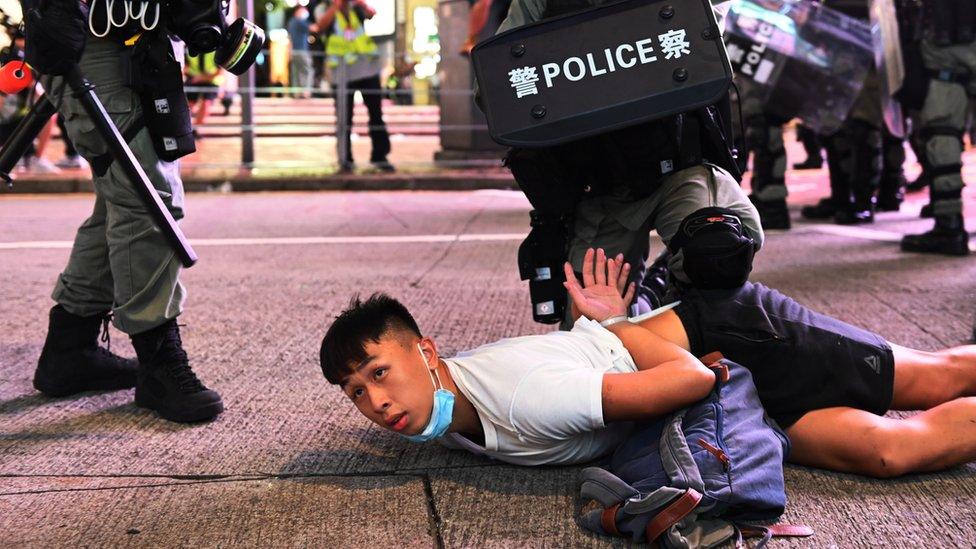
- Published1 July 2020
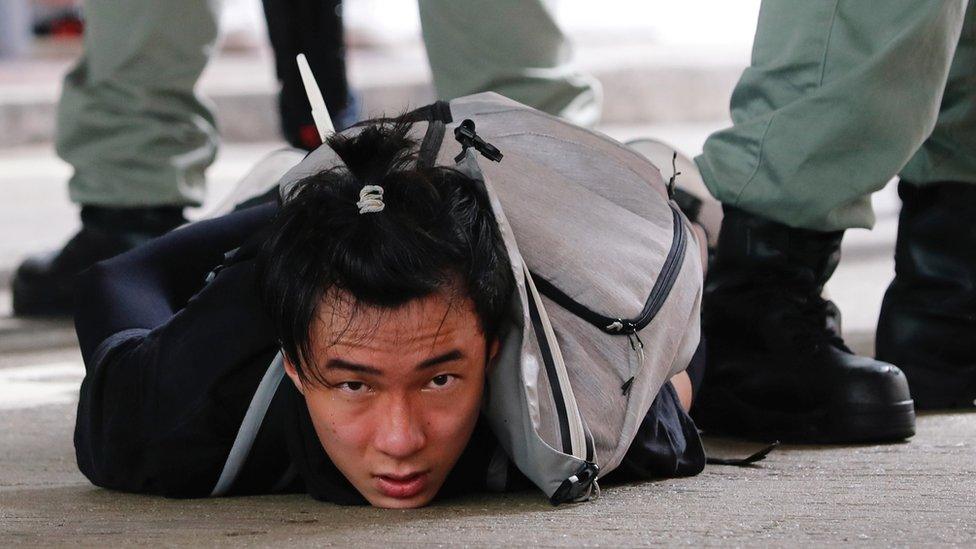
- Published1 July 2020
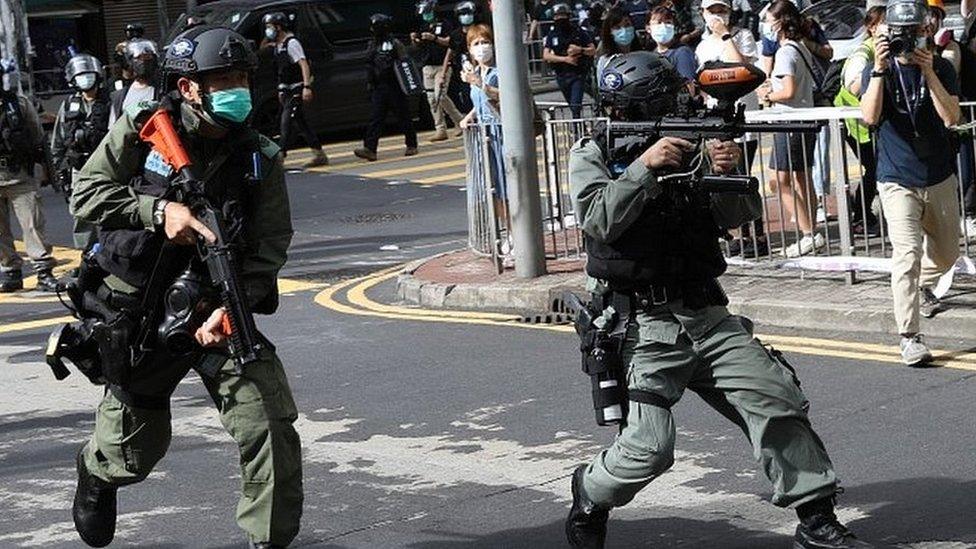
- Published30 June 2020
